Empathy can be a teacher’s greatest asset. And all CCM violin instructor Emma Gies has to do to empathize with her newer students is recall the exhilaration and anxiety she feels whenever she steps outside her own comfort zone — something she has done throughout her career. “I remember how intense it felt when I first started playing improvised styles of music, with no written music to rely on,” Emma says. Coming from a strictly classical background, it was a real challenge — but I want making up music and playing by ear to be an easy, natural process for my students from the 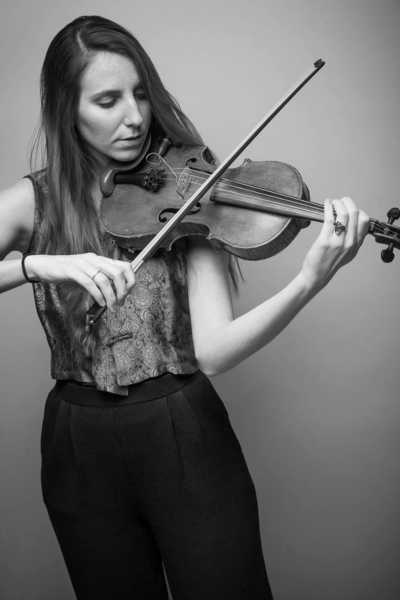 beginning.
beginning.
One way Emma puts students at ease is by asking them to bring in music that they like to listen to. “It can be Taylor Swift, something from Disney, a song from an anime show or a video game — whatever they like,” Emma says. “I use their favorite music — not mine — as an entryway. We can play along with a track that the kids enjoy, or maybe they can learn to play the melody by ear.”
The point is to get kids relaxed and engaged right from the start and discover the joy of making their own music. “Basically, it’s about using their interests as a way of opening up that world for them,” Emma says.
An instrument of discovery
Emma’s entry into the world of classical violin was practically preordained. Her grandmother Cleis Bays and grandfather Robert Bays played in the Nashville Symphony Orchestra from 1949 to 1969.
In addition, both of Emma’s parents are string players — her mother plays cello, her father plays violin. “So those were my choices,” says Emma, who began playing in fourth grade.
A special incentive made the decision easy: Her parents told her if she chose violin, they would let her play her grandmother’s instrument, a French violin made in Mirecourt circa 1850.
“It’s a beautiful instrument,” Emma says. “It is warm and expressive, and I feel intimately connected with my grandmother whenever I play it.”
Emma still plays and teaches with it today.
An Improvised Path
Growing up in Atlanta, Emma built a solid foundation in classical music. “I studied with Ken Wagner from the Atlanta Symphony,” she says. In college, she continued to study classical music with Rachel Huang.
At the same time, Emma became intensely curious about performing other types of music — a curiosity that she nurtured at California’s Pitzer College, where she received a BA in Interdisciplinary Musical Performance and Understanding, and later in Boston, where she received a master’s in Contemporary Improvisation from the New England Conservatory of Music.
While in California Emma began to experiment with different styles of violin music, including Hungarian Roma/Gypsy and Hindustani influences. “It was really inspiring to hear how many different sounds people could get from the same instrument,” she says.
Emma developed a particular fascination with Gayaki-ang, with its emphasis on sliding techniques. “Classical violin utilizes glissando,” she says, “but in Hindustani music everything is connected with the slide. As a string player, it’s mind blowing to discover you can play in this style where everything is connected instead of playing separate notes.”
Learning to Communicate Through Music
It wasn’t enough to study music in a vacuum. While in college Emma also became involved with the on-campus music scene outside the classroom, which ignited her interest in performing. “I started touring and performing with my folk duo, The Flower Pistils. I lived in Budapest for a year studying Roma/Gypsy violin music. And I recorded an original album for violin and voice called ‘What Is Done in Love.’”
Performing helped open new pathways of creative expression. “Persevering through the discomfort of learning to improvise and write my own music opened worlds for me,” she says. “Each creative challenge opened new doors and connected me with wonderfully inspiring people.”
It also informed her approach to teaching.
Every Student Has a Different Starting Point
Although Emma recognizes the need to start with fundamentals — “I give students a classical foundation for technique and music reading” — she also emphasizes ear training and improvisation from day one. “I want students to realize that whatever sound they hear, they can translate to their instrument.”
When teaching a G major scale, for example, Emma might play a drone on piano or some simple chords that allow the student to create their own music in G major.
“The point is to get them to want to learn it rather than have them feel like it’s just something they have to do,” Emma says. “Each student is different and each family is different. They may have different goals and I try to meet them where they’re at and inspire them.”
Learning to Work Together through Playing Together
In addition to nurturing students’ confidence and love of music through individual lessons, Emma encourages them to collaborate and communicate through ensemble programs like Cedar Ensemble, part of West Side Strings. “It’s open to kids who have basic music reading ability,” Emma says. “The focus is on learning to listen to each other and play together, an incredibly important skill that takes practice to develop.”
It’s a skill that extends beyond music. “Playing together teaches kids to listen to each other and support each other,” Emma says.
Music Education Never Really Ends
Although her grandma’s violin remains Emma’s go-to instrument, she continues to explore different instruments and avenues. She’s an accomplished keyboardist and singer (“I love singing in harmony”) and will “dabble in any instrument that anyone hands me.” She continues to collaborate with her partner Micah Huang on performance projects including the 2024 Los Angeles Chinatown Hungry Ghost Festival and the Blood on Gold Mountain podcast.
“Music is such a huge world,” Emma says. “There’s always so much to learn. So I see myself as a continuous student of music. And I feel like I’m right there with my students in that regard.”
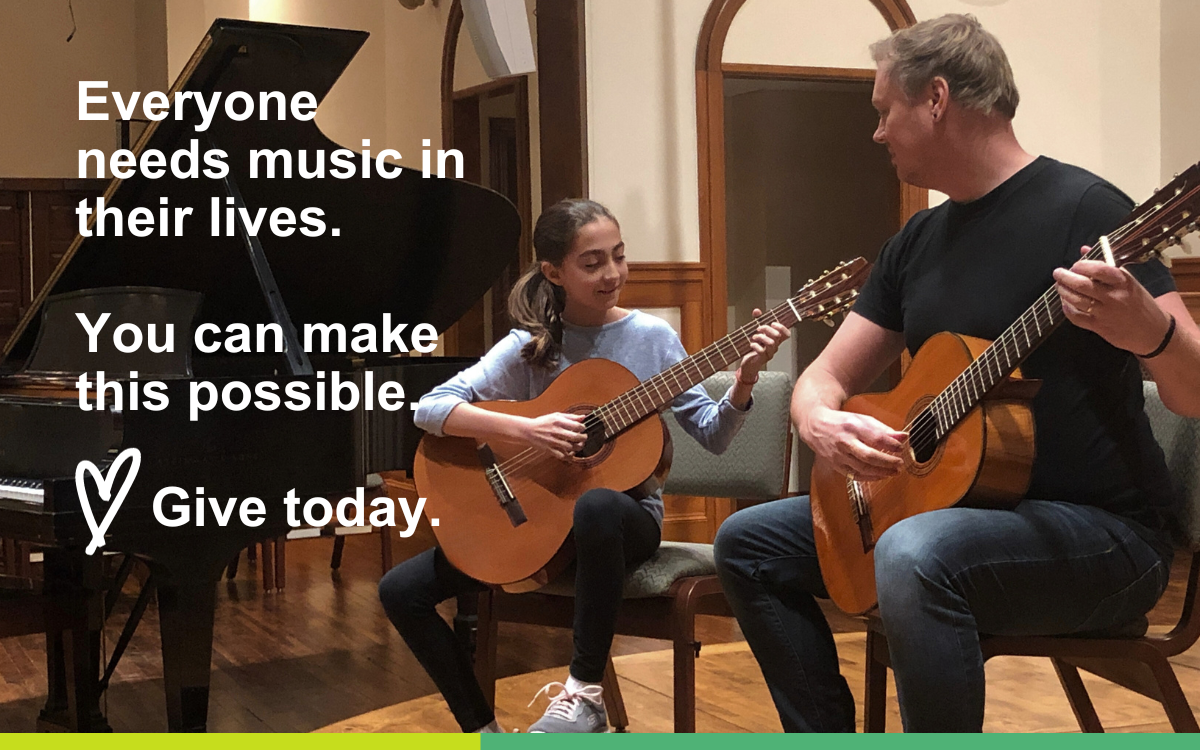
Last year alone, CCM provided quality music education to over 475 students. Among them, we proudly supported over 50 young musicians through financial assistance.
Today, not everyone has access to music education—a powerful teaching tool that provides amazing mental and physical health benefits. Sadly, not everyone can afford music instruction by top-notch experienced and professional musicians and educators. And of course, not everyone can pay for extra enrichment activities that go hand in hand with music instruction—theory classes, student development workshops, and musicales—like we offer here at CCM.
We still face many challenges in making music education accessible and affordable for everyone who loves it. No one should miss the opportunity to join our music family because of financial barriers.
Beyond the Notes, founded by violinist Sarah Whitney, is an immersive concert experience that differs from traditional classical concerts. Audience members can submit questions to the artists which then are randomly chosen and answered on stage. 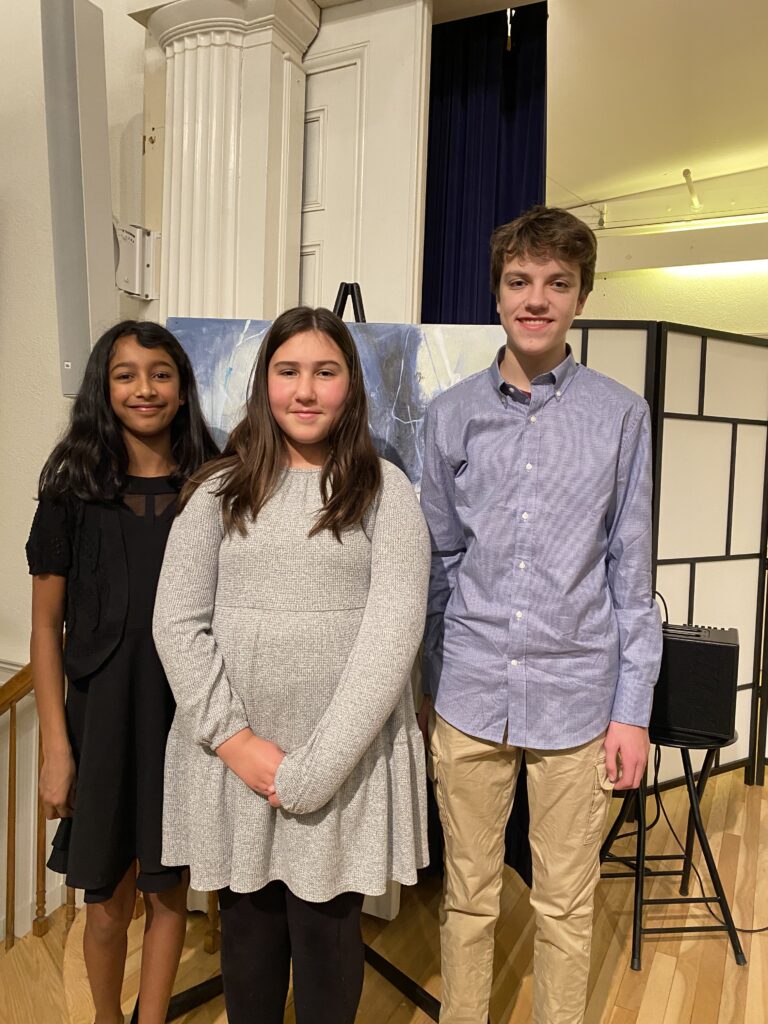
The prelude featured CCM students Mathias Bitter, Zoe Quievryn, and Anika Thadakamalla who had the thrilling and gratifying experience of performing at the Beyond the Notes concert on Friday, December 8th.
Meet the students who went the extra mile to entertain in our community—why did they choose to play their instruments?
Mathias Bitter, played Prelude no 6 in D minor BWV 851 by J.S. Bach
“I started playing the piano when my grandfather gave my family a piano and my parents signed me up for piano lessons. I enjoy the challenge of learning new pieces and I also enjoy learning about classical music!”
Zoe Quievryn, played Sonatina in C Major by Tobias Haslinger
“I realized I love music while playing a baby ukulele. When I thought more about what instrument I should start with, I thought the piano was such a pretty instrument.”
Anika Thadakamalla, played The Knight Errant by J. F. Burgmuller
“I chose the piano because I really enjoy playing this delightful instrument. I love the feeling when I finally get a complicated note right, after lots of practice and many tries. I love how the piano features a variety of pitches, from high to low, and I plan to continue playing the piano as adult.”
Bravo Mathias, Zoe, and Anika!
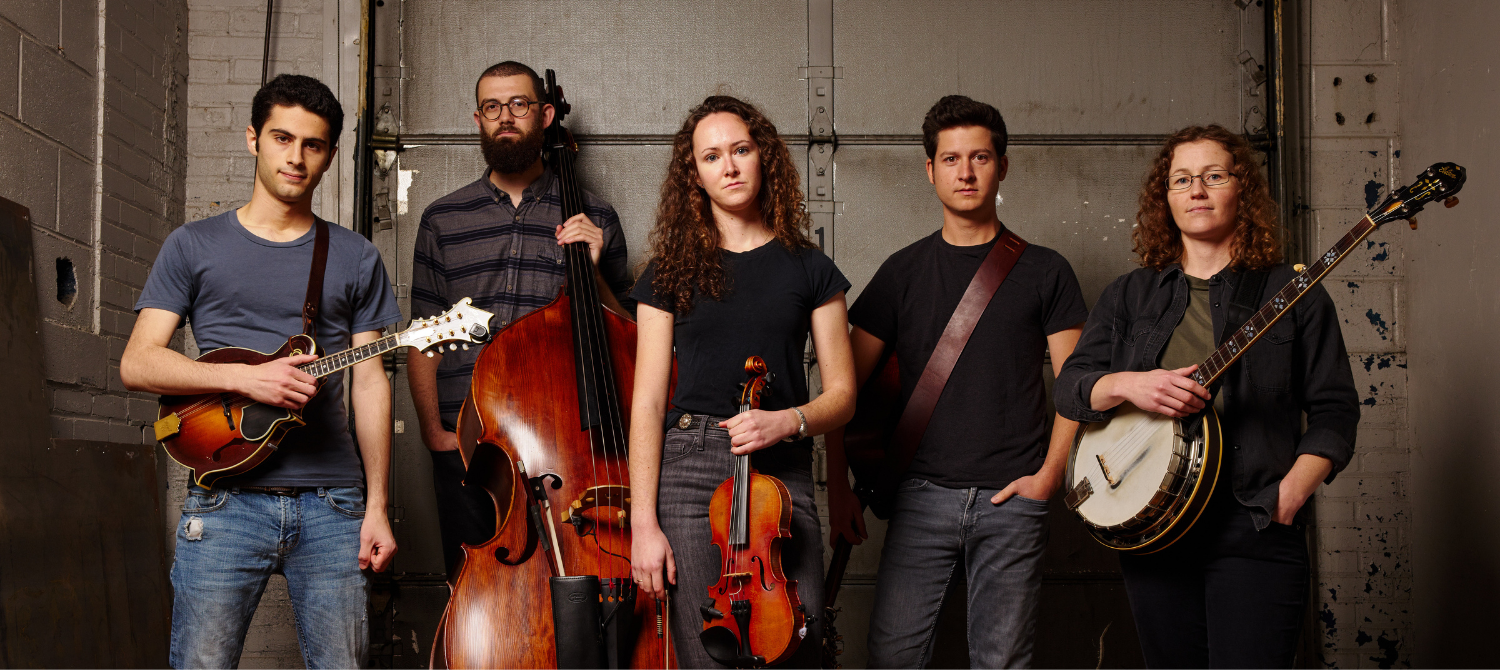
Mile Twelve, A Bluegrass Concert
Saturday, January 20th at 7:00 pm
Join us for a spectacular bluegrass show by Mile Twelve, a band that pushes the limits of the genre and creates new musical possibilities. With a mix of original songs and traditional tunes, the band showcases a fresh and dynamic bluegrass sound.
Get your tickets in advance or, if not sold out, at the door.
The 2023-2024 Concert & Lecture Series is made possible in part by our Lead sponsor, Emerson Health.

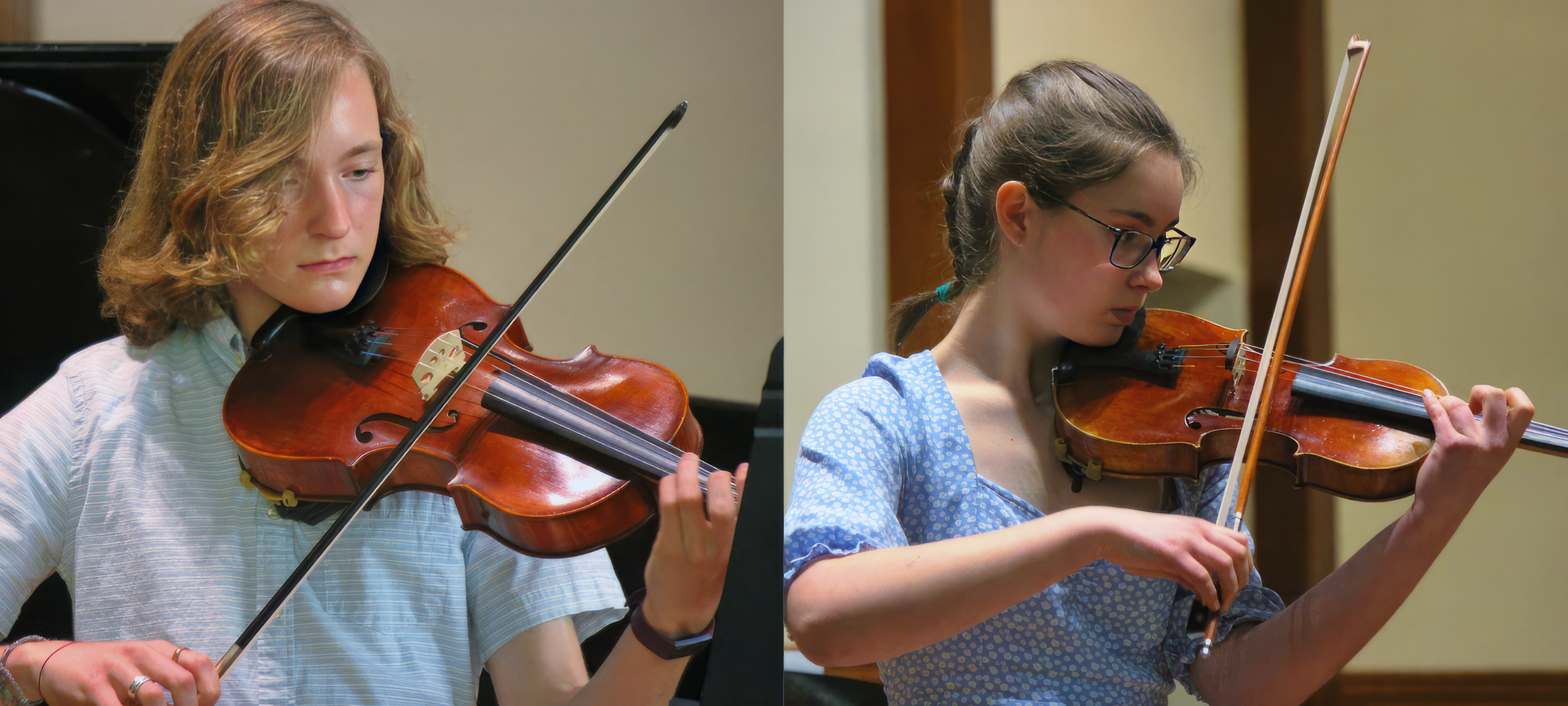
CONGRATULATIONS to Grady Flinn, viola student of Susan Gottschalk and to Abby Kirincich, violin student of Angel Valchinov, on successful Senior District Orchestra MMEA auditions!
What do Fidelity, Raytheon, and State Street have in common?
They have matching gift programs.
Won’t you please consider giving the gift of music today?
Are you a CCM friend yet?
Join us on Instagram and Facebook to be the first to learn CCM news and more! See what music videos we like, photos we post, practice tips and articles we suggest, and new music in the music world. Be sure to bookmark the CCM Blog to never miss a new post.